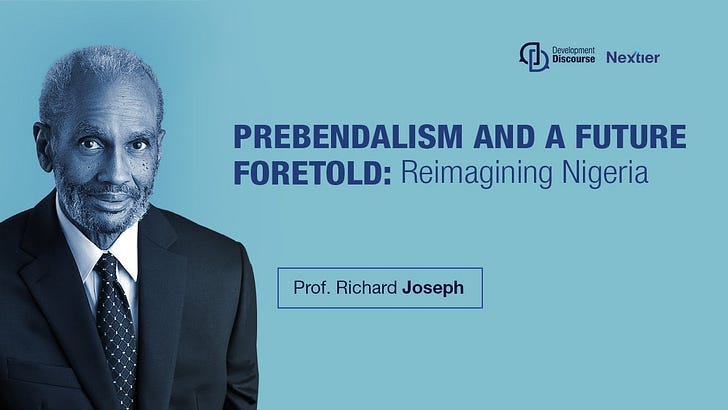Nigeria’s challenges were foretold. In his seminal book, “Democracy and Prebendal Politics in Nigeria,” Prof. Richard Joseph analysed how prebendalism would hinder Nigeria’s development. Prebendalism describes a political system in which government officials misuse their positions to privatise state resources for themselves and their ethnic, religious, or social groups. He cautioned that "Nigeria was building a republic on crumbling stones."
On Wednesday, November 20, 2024, Prof. Joseph was my guest on Development Discourse, Nextier’s public policy discussion platform. We covered a wide range of topics, reflecting on the past, the present, and what the future may hold.
Prof. Joseph highlighted the significant economic disparity between Asia and Sub-Saharan Africa. While the former prioritised investments in human capital, physical infrastructure, and transformative leadership, Nigeria, for example, remains trapped in the vicious cycle of prebendal politics.
In the context of the 2024 Nobel Prize in Economics, Prof. Joseph emphasised the importance of institutions as an explainer variable. He downplayed the impact of path dependency by citing Botswana and Singapore as examples of countries that, despite facing historical challenges, made strategic decisions that led to their progress. He stressed that Nigeria can follow a similar path, if it can significantly reshape its political economy.
Professor Joseph articulated a vision for an “enterprise society” where individuals leverage their skills to promote economic growth. This vision is underpinned by an education system responsive to the demands of a technologically driven world. Furthermore, revitalising Nigeria’s economy depends on empowering the general populace, especially the youth, rather than the current focus on the elite.
While acknowledging religion’s role in Nigeria’s story, Prof. Joseph cautioned that relying on faith to address national challenges may diminish citizens' sense of agency. This could limit their active participation in building the nation. He acknowledged the positive examples of transparency and accountability exhibited by certain religious organisations, advocating for scaling these practices to promote broader societal transformation.
Overcoming prebendal politics requires adopting alternative, ethical approaches to governance and development across all levels of society. It requires empowering Nigerians, particularly the youth, as catalysts for change. Citing Arthur Ashe—"Start where you are. Use what you have. Do what you can"—he encouraged a collective reimagining of the nation. This vision for nation-building requires collaboration among the government, civil society, and the private sector, grounded in optimism and a shared belief in the possibility of a brighter future.
Click on https://bit.ly/DevDisc_PRJ to watch the chat. Similar videos are available on YouTube: “Development Discourse with Patrick O. Okigbo III.”



